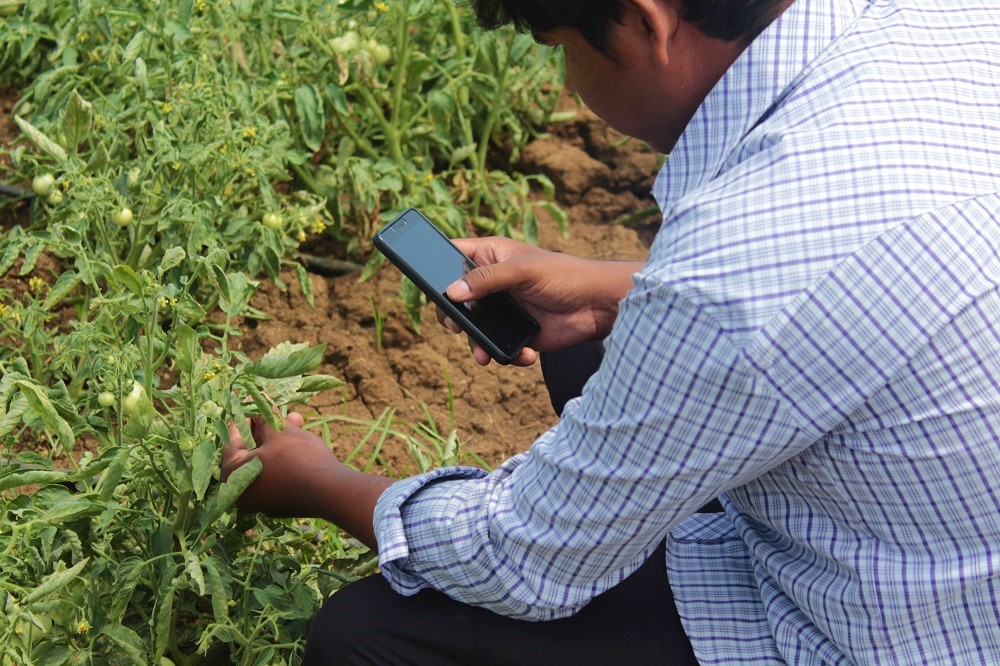Plant Doctors in Vietnam go digital
Plant clinics in Vietnam have received a major boost with the introduction of digital devices to facilitate the work of plant doctors. The use of tablets and smartphones has been proven to help plant doctors improve the quantity and quality of data generated from plant clinic operations. With improved ICTs, the captured data from plant…
New coalition puts knowledge and skills into the hands of those who need it
CABI has joined forces with the ISEAL Integrated Pest Management (IPM) Coalition in the fight to implement better, less chemical-dependent, ways for farmers to manage agricultural pests and diseases that account for around 40% of lost crops worldwide. By linking with the Plantwise Knowledge Bank, the coalition aims to share knowledge on sustainable pest management…
Plantwise trials image recognition app Plantix in India
Plantwise and the German-based company PEAT (Progressive Environmental & Agricultural Technologies) are about to conduct an 18-month pilot study to assess the benefits of PEAT’s smartphone app Plantix, which can help to diagnose plant pests, diseases and nutrient deficiencies in the field.
Sri Lanka launches Skype service to further strengthen advisory support in plant clinics
Plant clinics in Sri Lanka, known as the Permanent Crop Clinic Programme, continue to grow and modernize throughout the country. After successfully rolling out e-plant clinics in several provinces in Sri Lanka, the younger generation of agricultural extension workers is now feeling just as confident in solving crop health issues as their senior colleagues did…
Fall Armyworm: A new collaboration to disseminate best management practices to farmers
From the 13th to the 15th of November 2017, USAID and CIMMYT held a Regional Training and Awareness Generation Workshop on Fall Armyworm Pest Management for Eastern Africa in Addis Ababa, Ethiopia. Participants from 11 countries attended the workshop to discuss short, medium and long term strategies to control Fall Armyworm in Africa. Following its…
Plant Doctors in Ghana go digital
The operation of plant clinics in Ghana received a major boost with the introduction of digital devices to facilitate the work of plant doctors. The introduction of tablets and Android phones has proven to help plant doctors improve the quantity and quality of data generated from plant clinic operations.
Update: New Pest & Disease Records (15 Dec 17)
We’ve selected a few of the latest new geographic, host and species records for plant pests and diseases from CAB Abstracts. Records this fortnight include a first report of snow mould (Typhula cf. subvariabilis) in Antarctica, the first report of Drosophila suzukii and the black locust gall midge (Obolodiplosis robiniae) in Poland.
Space-age technology for fight against crop-devastating pest outbreaks
Last night, the Pest Risk Information Service (PRISE), which uses state-of-the-art technology to help inform farmers in sub-Saharan Africa of pest outbreaks, was launched in Zambia at the British High Commission in Lusaka. The service is being developed by a consortium led by CABI and is funded by the UK Space Agency’s International Partnership Programme…
Photo story: e-plant clinics in Sri Lanka
E-plant clinics in Sri Lanka were launched in June 2015. Since then 190 Plant doctors have been trained and equipped with tablets, with the Sri Lankan Ministry of Agriculture funding half of the total number of tablets themselves. Being equipped with tablets means Plant doctors give higher quality recommendations, and the data collection process is also…
Gobernación de Santa Cruz lanza piloto de Clínicas de Planta Electrónicas
La Gobernación de Santa Cruz por medio de su ‘Servicio Departamental Agropecuario y Sanidad e Inocuidad Agropecuaria’ (SEDACRUZ) y de DSIA, conjuntamente con el Centro de Investigación Agrícola Tropical (CIAT-Bolivia) implementan clínicas de plantas en el departamento de Santa Cruz, Bolivia, desde el 2012. El grupo coordina acciones de entrega de servicios de diagnóstico y…


